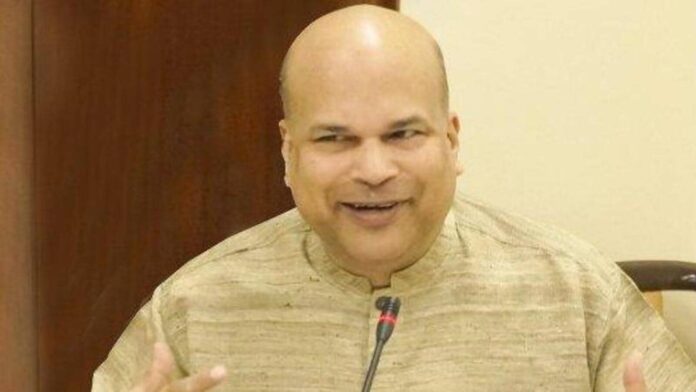India-Sri Lanka Economic Partnership to Boost Relations, says Sri Lankan Envoy
In a recent interview, Sri Lankan envoy Milinda Moragoda expressed his belief that the implementation of the new ‘India-Sri Lanka economic partnership for maritime, energy, and financial connectivity’ will be a significant step towards addressing the sensitivities of both countries and forging stronger relations.
Moragoda thanked India for its “indispensable role” in helping Sri Lanka cope with the financial crisis last year. He expressed his country’s eagerness for greater economic integration to benefit from India’s growth. Additionally, Sri Lanka hopes that India, particularly its private sector, will play a key role in investments and divestment plans.
Unveiled during Sri Lankan President Ranil Wickremesinghe’s visit to India last month, the economic partnership includes power grid interconnection, construction of a petroleum pipeline, and a feasibility study for land connectivity.
Prime Minister Narendra Modi, after talks with Wickremesinghe, stated that the security interests and development of both countries are intertwined, with both sides considering each other’s sensitivities.
Moragoda highlighted the benefits of stronger economic links, stating, “Once that economic integration takes place, I don’t think there is space for anybody else in that.” He also emphasized the strong bilateral dialogue between the leaders of both countries, which has enabled them to navigate through difficult periods.
The visit of a Chinese surveillance vessel to the Chinese-controlled Hambantota port during the economic crisis had strained bilateral relations. However, Moragoda believes that Wickremesinghe’s talks with Modi helped address these issues and paved the way for the next phase of the relationship.
The economic partnership is crucial for connectivity, economic integration, and investments, including the resumption of ferry services, expanded air connectivity, and the transformation of the Trincomalee oil tank farms into a regional energy hub.
According to Moragoda, hooking onto the Indian economy is vital for Sri Lanka’s growth. Increased air and maritime connectivity are also important for tourism, as India is the largest source market for tourists.
During the discussions between Wickremesinghe and Modi, the idea of the private sector playing a greater role in investments was raised. This presents opportunities for Indian investments in Sri Lanka’s renewable energy sector, ports, and Colombo airport.
The Sri Lankan government’s plans to sell Sri Lankan Airlines, the main insurance company, a major hospital, and the Hilton Hotel also offer opportunities for India’s private sector.
Technical discussions are underway to determine the most economical and efficient way to connect the electricity grids of both countries. Private investments are being explored to expedite the process.
The concept of land connectivity is also being explored, with a focus on feasibility studies and addressing environmental concerns. The advancing technology in road building makes previously impossible tasks possible now.
Another important matter raised by Modi during Wickremesinghe’s visit was the need for a political solution to fulfill the aspirations of Sri Lanka’s Tamil minority. Moragoda believes that the Sri Lankan president must build consensus on this issue in Parliament.
While acknowledging that the resolution may take time, Moragoda stressed the importance of starting somewhere. He expressed hope for engagement and stated that the democratic process must be respected.
The proposed economic partnership holds promise for the future of both countries’ relations. As the dialogue continues and plans are implemented, India and Sri Lanka aim to strengthen their ties and foster mutual growth and development.
About the Author:
Rezaul H Laskar is the Foreign Affairs Editor at Hindustan Times. Besides his professional interests, he enjoys movies and music.




































